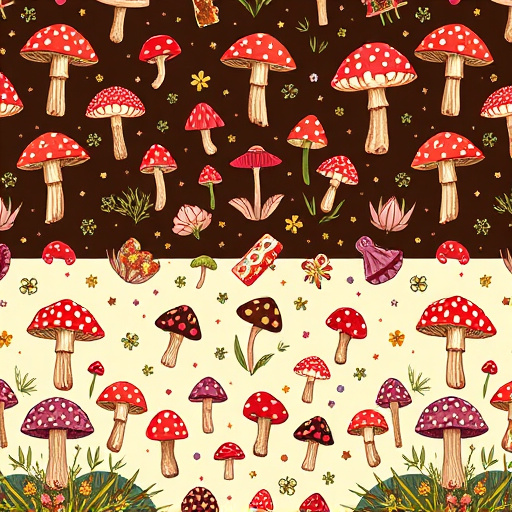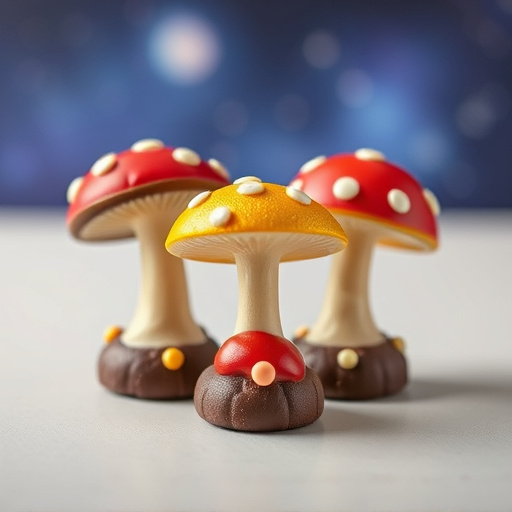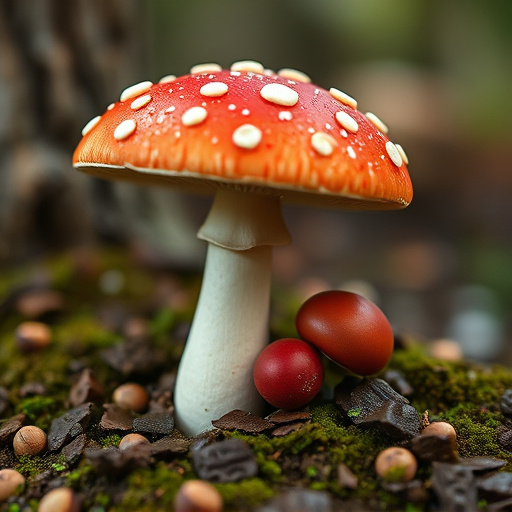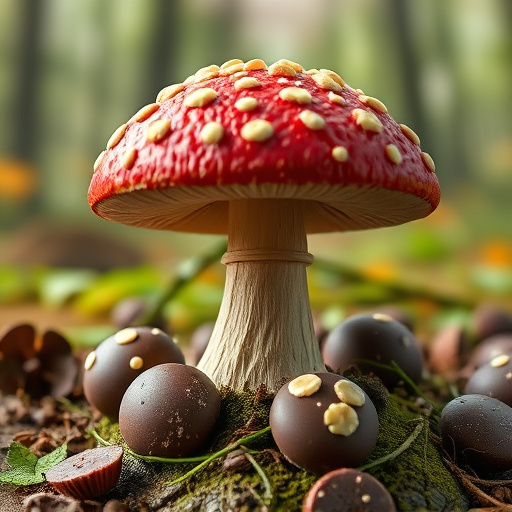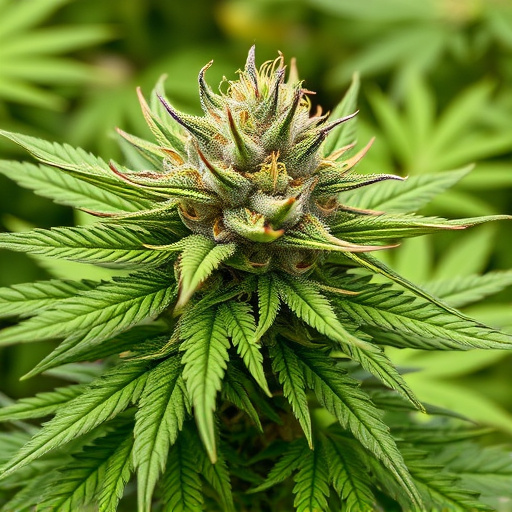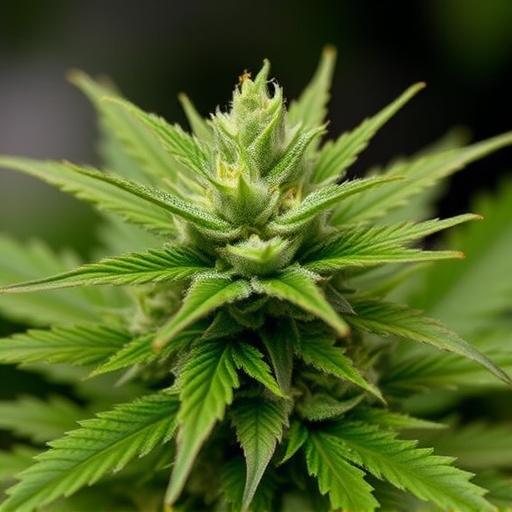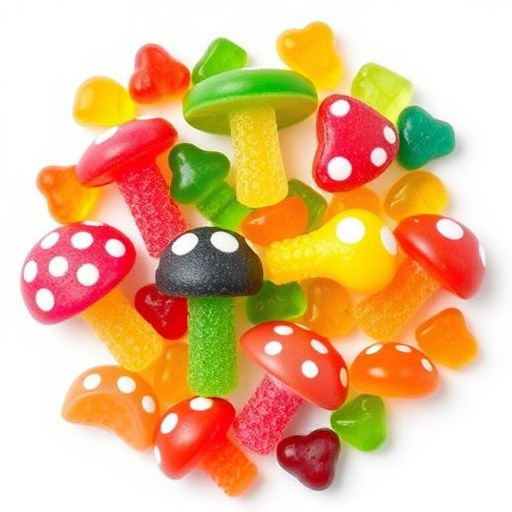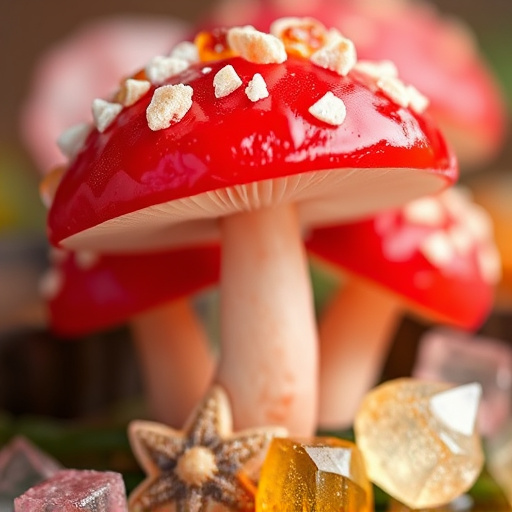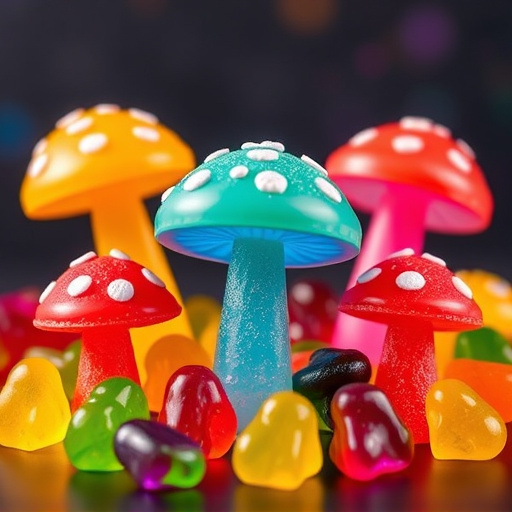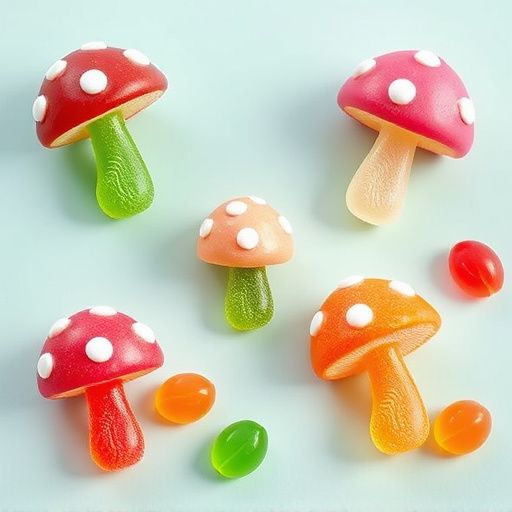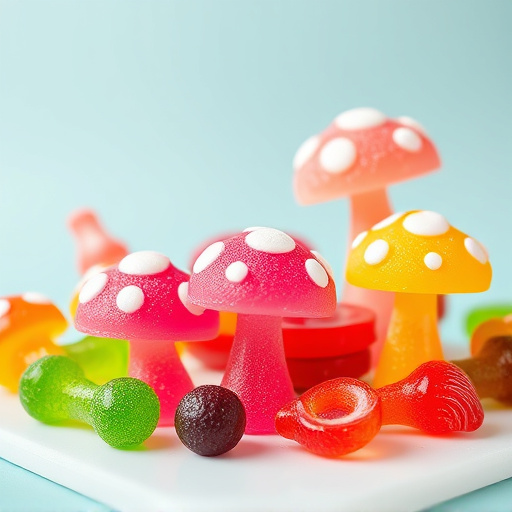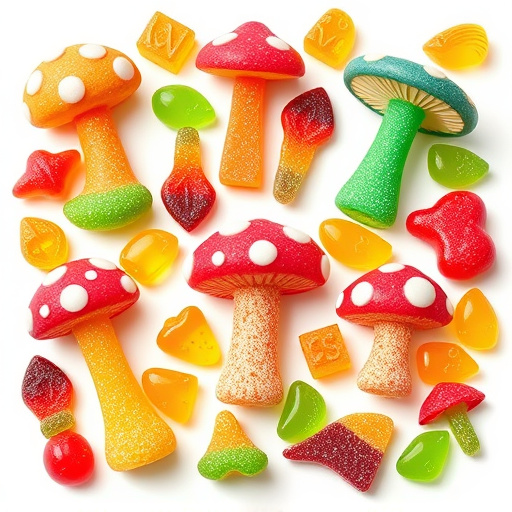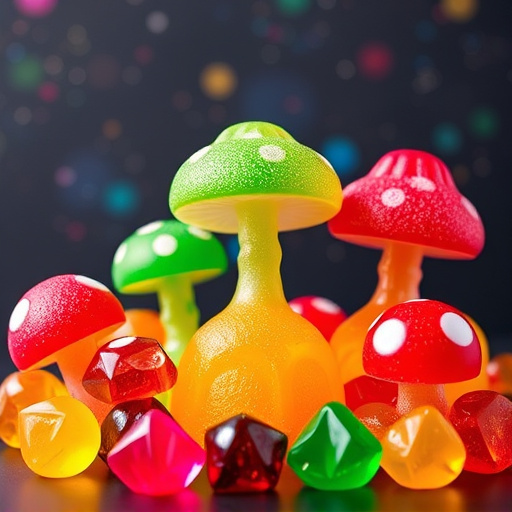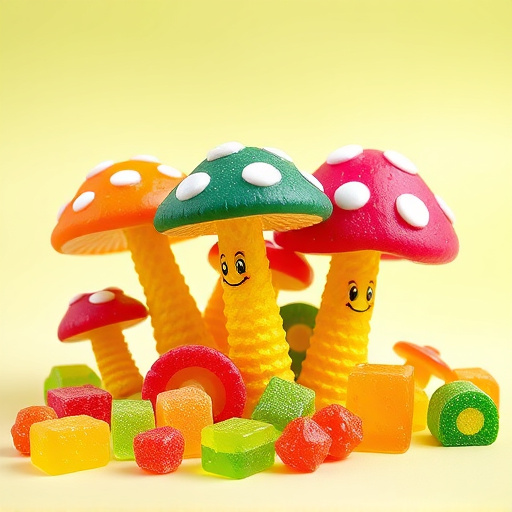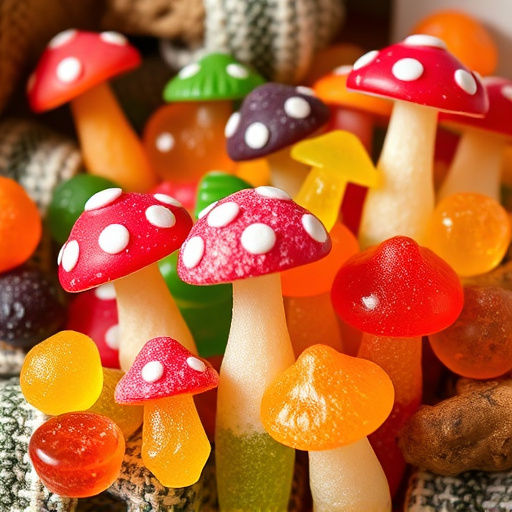Magic Mushroom Gummies aren't a passing trend but a potential game-changer in neuroenhancement, leveraging psilocybin's ability to stimulate neural connections and promote brain plasticity. Studies show promise for treating depression, anxiety, and addiction by rewiring negative thought patterns, mirroring meditation and psychotherapy effects. As research progresses, these gummies could revolutionize mental wellness, offering new perspectives on challenges and transforming brain health approaches.
“Unleash the potential of your mind with an innovative approach to brain health: Magic Mushroom Gummies. These delightful treats offer a unique way to explore the benefits of psychedelic compounds for cognitive wellness. In this article, we delve into the science behind magic mushrooms and their impact on cerebral functionality, focusing on the vital role of brain plasticity in learning and recovery. Discover how these natural remedies could revolutionize your mental health journey.”
- Magic Mushroom Gummies: Unlocking Potential Benefits for Brain Health
- Understanding Brain Plasticity and its Role in Learning and Recovery
- Exploring the Science Behind Magic Mushrooms and Their Impact on Cerebral Functionality
Magic Mushroom Gummies: Unlocking Potential Benefits for Brain Health
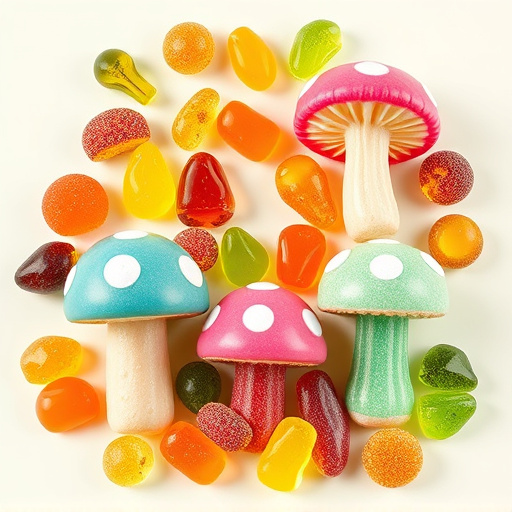
Magic Mushroom Gummies are more than just a trendy snack; they represent a potential frontier in neuroenhancement, with an increasing focus on their impact on brain health and plasticity. Studies suggest that compounds found in magic mushrooms, primarily psilocybin, can stimulate neural connections and promote neuroplasticity – the brain’s remarkable ability to adapt and reorganize itself. This opens up exciting possibilities for treating conditions like depression, anxiety, and even addiction by helping individuals achieve deeper insights and rewiring negative thought patterns.
By mimicking some of the effects of meditation and psychotherapy, Magic Mushroom Gummies could offer a novel approach to mental wellness. The key lies in their ability to enhance consciousness and foster neuroplasticity, potentially enabling users to break free from habitual thinking patterns and embrace new perspectives on challenging situations. As research continues to explore these compounds’ therapeutic potential, Magic Mushroom Gummies are poised to revolutionize the way we think about brain health and mental well-being.
Understanding Brain Plasticity and its Role in Learning and Recovery
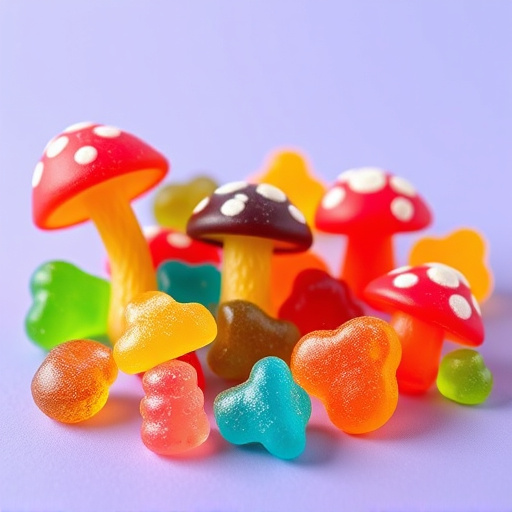
The human brain is an incredibly adaptable organ, a concept known as brain plasticity or neuroplasticity. This ability to change, adapt, and rewire itself is fundamental to our capacity for learning and recovery. When we learn something new, form memories, or recover from injuries, it’s because our brains are reorganizing neural connections and forming new ones. Brain plasticity is like a malleable tapestry that can be enhanced by experiences, with each new connection adding to its complexity.
Magic Mushroom Gummies, containing psilocybin, have gained attention for their potential to stimulate brain plasticity. Psilocybin is known to induce altered states of consciousness and has been studied for its therapeutic benefits. Research suggests it may promote neuroplasticity, helping the brain form new connections faster and more effectively. This characteristic makes magic mushroom gummies not just a recreational substance but also a potential tool in therapeutic settings, aiding in learning, memory retention, and recovery from conditions like depression and anxiety.
Exploring the Science Behind Magic Mushrooms and Their Impact on Cerebral Functionality
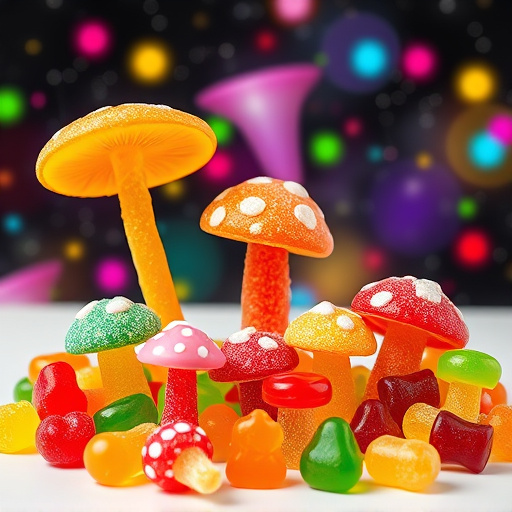
Magic mushrooms, scientifically known as Psilocybin mushrooms, have intrigued scientists for their unique ability to alter consciousness and perception. Recent studies are shedding light on the potential therapeutic benefits of these fungi, particularly in the context of brain plasticity. Brain plasticity refers to the brain’s remarkable capacity to adapt and reorganize itself by forming new neural connections throughout life.
Research suggests that psilocybin, the active compound in magic mushrooms, can temporarily disrupt normal brain activity, leading to altered states of consciousness. This disruption allows for enhanced neural connectivity, promoting a sense of increased creativity, emotional well-being, and even potential healing. In fact, studies have shown that Magic Mushroom Gummies, which deliver psilocybin in a controlled and edible form, can facilitate these neuroplastic changes, making them a promising tool for various therapeutic applications, including depression, anxiety, and end-of-life fear.
Magic mushroom gummies, while offering potential benefits for brain health through their impact on cerebral functionality and promoting brain plasticity, are a complex topic that requires further scientific exploration. As we continue to understand the role of brain plasticity in learning and recovery, it’s crucial to approach these alternative treatments with caution and evidence-based curiosity. The science behind magic mushrooms is evolving, but it’s important to remember that their effects can vary among individuals. With proper research and regulation, magic mushroom gummies could revolutionize brain health support, but for now, they remain largely untapped in this regard.
